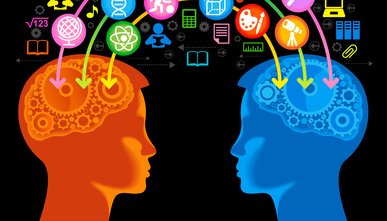 The Competencies, Roles and Responsibilities of a Knowledge Manager
The Competencies, Roles and Responsibilities of a Knowledge Manager
Introduction
Knowledge is one of the primary assets of an organization. The flow of knowledge, into, within, and out of an organization, and the embedding of critical knowledge into the organization, is a process that can be optimized through resourcing a Knowledge Manager as a full-time (preferred) or part-time role. The following competencies and attributes are derived from years of experience with working with clients and organization knowledge managers. Many will evolve as experience is gained.
Competencies
The Knowledge Manager candidate should possess the following competencies:
- Confident and effective communicator using various media
- A skillful listener with an open style; good at facilitating discussion
- Excellent influencing skills
- Good networking and sharing of ideas and success
- Clear and up-to-date understanding of business situation and processes and good working knowledge of organizational strategy
- Ability to think strategically in terms of culture and behavior, business processes and technology and tools
- Good appreciation of customer needs at both operational and strategic levels
- An understanding of the principles of knowledge management
Role
The Knowledge Manager will perform the following roles:
- Promote knowledge capture and reuse through operational and business processes
- Capture and distill experience and insight for reuse to improve performance
- Facilitate Knowledge Management strategic planning
- Facilitate knowledge transfer sessions
- Provide internal training and consulting on KM concepts and methodologies
- Plan, develop, stand up, support, and promote collaborative tools and techniques such as communities of practice to facilitate sharing of ideas and work among internal teams and external partners
- Help disseminate information about the organization’s knowledge sharing program to internal and external audiences, maintaining communications on knowledge sharing across the organization, participation in orientation and training sessions, and preparation of brochures/presentations
Specific Responsibilities
The responsibilities of the Knowledge Manager will evolve as KM is developed within the organization. The responsibilities are grouped according to the three stages of KM application.
Getting the Organization Ready
The Knowledge Manager should perform the following functions to facilitate KM readiness for the organization:
- Create awareness in the organization of the principles of knowledge management and how they can impact the performance of the organization.
- Work with leadership to establish KM as a priority business lever for the organization and develop means to legitimize and motivate the seeking and sharing of knowledge
- Create an awareness of the behaviors and culture needed to promote knowledge management and guide and support both individuals and teams in embracing a change in behavioral style, moving from data/information push to knowledge pull and sharing
- Work to ensure appropriate IT enablers for knowledge management
Managing the Knowledge Base
The Knowledge Manager should have the following responsibilities in managing the knowledge base:
- Identify the knowledge critical to the organization; looking beyond technical knowledge (‘know-how) to strategic, business-environmental, people and other knowledge categories (‘know-why’, ‘know-who’ etc.)
- Identify the individuals in the organization with knowledge in specific areas which are critical to the performance of the organization and enroll them in the process of managing that knowledge
- As necessary, develop a suite of process tools for learning before, during and after and a means of integrating these within the normal working practices of the organization
- As necessary, develop processes for capture, storage, validation and retrieval of knowledge; both within the organization and externally with others.
- Prompt for, and facilitate, the capture of learning after all significant projects
- Ensure the knowledge generated within the organization is made easily visible, available and useful to seekers
- Monitor the effectiveness, maintenance and use of the IT tools and systems as they apply to KM, and implement improvements
- Coach the organization in the use of KM processes and tools
Leveraging Expertise
The Knowledge Manager should have the following responsibilities in leveraging expertise:
- Prompt for, and facilitate, ‘Learning Before Doing’ for all significant projects
- Prompt for, and facilitate, the sharing of knowledge while doing the work
- Help new ideas from the workforce survive and thrive inside and outside the team
- Identify the individuals within the team or organization with critical knowledge for the organization and enroll them in the process of applying that knowledge within the organization
- Monitor the behaviors and culture within the organization as they impact KM and prompt for recognition when and where necessary.
NOTE: These competencies and attributes are representative of the competencies and attributes found in roles and responsibilities of Knowledge Managers, Champions or similar descriptions of this type of role in organizations recognized as high performing knowledge enabled organizations. They are provided as a guide to success for the sponsoring organization.
In my consulting experience, the organizations that are willing to provide a Knowledge Manager to work with the consulting team from the beginning of a project are demonstrating a real commitment to leveraging their investment in KM and sustaining it over the longer term

